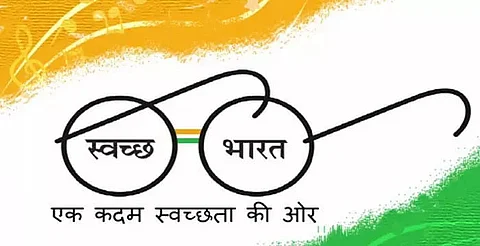
- Home
- Live Blog
- Breaking News
- Top Headlines
- Cities
- NE News
- Sentinel Media
- Sports
- Education
- Jobs

India's Swachh Bharat Mission (Grameen) earned recognition as the World's largest behaviour change programme when the country achieved universal sanitation coverage in 2019 by providing access to the toilet to all rural households and making every village Open Defecation Free (ODF). World Toilet Day today reminds all stakeholders of SBM (Grameen), including residents of ODF villages, that sustaining the ODF status is the next big challenge that the country needs to overcome. The phase II of SBM (Grameen) envisages sustaining the ODF status by villages by ensuring solid and liquid waste management and making the villages become ODF plus. Various components of ODF plus include biodegradable waste management, grey water management, faecal sludge management and plastic waste management besides other routine cleanliness drives. Till August, over one lakh villages in the country declared themselves as ODF plus introduced intermediate stages in the process of declaring a village as ODF Plus, given that all villages may not fulfil all criteria under the verticals of biodegradable waste management (BWM), plastic waste management (PWM), greywater management (GWM) and faecal sludge management (FSM) before declaring a village as ODF Plus. The ODF plus villages have been categorized into three stages – aspiring, rising and model. Apart from all households, schools and Anganwadi centres panchayats having functional toilets with separate toilets for males and females, aspiring ODF plus villages have either solid or liquid waste management while rising category villages have arrangements for both solid and liquid management while in ODF plus-model villages in addition to these, all public places are observed to have a minimal litter, minimal stagnant wastewater, no plastic dump places and ODF plus messages are prominently displayed through wall paintings and billboards. Under SBM-G, altogether 5,99,216 villages have self-declared as ODF. Official data also show that to date only 40,150 villages have been declared ODF-plus model which points towards the long journey the country has to undertake towards achieving the objective of every single village in the country attaining the ODF-plus model status. The number of ODF-plus villages in aspiring has risen to 68,000 and the number of ODF-plus-rising category villages has increased to 18,377 indicative of the pace of SBM (Grameen) phase II compared to phase I. Phase II is targeted to be completed by 2024-25 which appears to be a tough mission at the current pace of implementation. The Central government approved the SBM (Grameen) phase II in February 2020 with a total outlay of Rs 1,40,881 crore and allocation for the current year increasing by about 20% speaks volumes about the push given by the Central government. Tamil Nadu is the top performer with 93% of its villages categorized in the aspiring category but of a total of 12,525 villages in the state only 13 have so far been categorized in the rising category and 11 in the ODF-plus model category which reflects the ground situation as far as an achievement under SBM (Grameen) phase II is concerned. Andaman and Nicobar Islands is the top performer in ODF-plus model status with all 189 villages included in the category, while Sikkim with 142 (37%) of total 403 villages in the category leads the chart of states followed by Kerala with 33% coverage and Telangana with 32.62%. In Assam, less than one per cent of total villages (226 out of 25,503) in the state are categorized as aspiring, 0.05% of villages as rising (12 villages) and only 0.02% of villages (five villages) as ODF-plus model present a picture of dismal performance. It calls for a thorough review to identify the critical gaps so that targeted datelines of achieving the desired success of raising the status of every single village into an ODF plus model village can be met and not become more difficult due to unwarranted delay. The lesson learnt from the SMB how the awareness was built in rural India about the importance of having access to a functional toilet is critical to health and hygiene and achieving huge success in making all villages ODF can be applied in raising awareness on intermediary stages of aspiring and rising categories towards making all ODF villages sustainable. The flagship programme of Jal Jeevan Mission has a crucial role in SBM (Grameen) as availability and access to the piped water supply at every household is essential for sustaining ODF status. Prohibition of Single Use Plastic (SUP) is another critical intervention by the government aimed at reducing plastic pollution but poor enforcement has allowed the circulation of prohibited SUP in villages apart from cities and towns. Enforcement of the SUP ban can help villages achieve the desired plastic management but this requires will by the government and administration to enforce and monitor as well as awareness among the general public about the harmful impact of SUP and how its prohibition can make their villages, and towns clean and environment-friendly. A massive awareness drive is a key to making SBM-phase II successful.